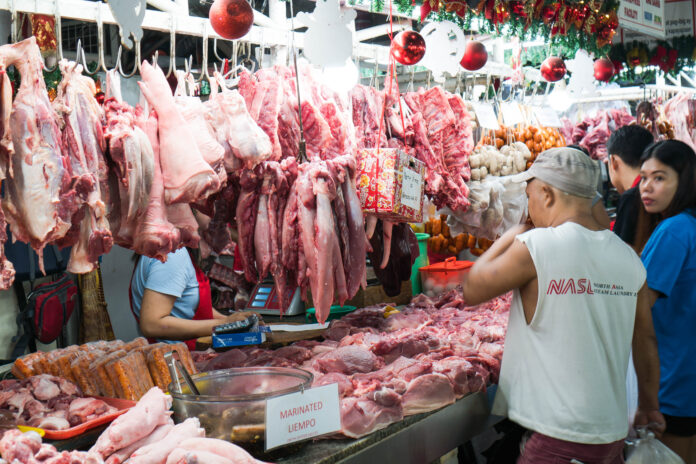The country’s meat imports posted a significant increase in 2024, reflecting growing demand and shifts in consumer preference, according to data from the Bureau of Animal Industry (BAI). From January to November 2024, the Philippines imported 1.33 billion kilograms of meat, marking a 19.4 percent rise from the 1.12 billion kilograms imported in the same period of 2023.
Pork remained the dominant category, making up 50.4 percent of the total meat imports at 671.56 million kilograms. This marks a 21.9 percent jump from 550.54 million kilograms in 2023. With domestic pork prices rising, which are currently between P330 and P450 per kilogram in Metro Manila, imports have become a key solution to address local shortages and price volatility.
Chicken followed closely with 435.5 million kilograms or 32.7 percent of total imports, reflecting a 10.7 percent increase from the previous year. Despite the local poultry sector’s efforts to ramp up production, higher imports have been essential to meet demand, especially in the face of fluctuating local prices, with whole dressed chicken selling from P150 and P230 per kilogram.
Meanwhile, beef imports saw a dramatic surge of 39.7 percent, reaching 187.7 million kilograms, up from 134.4 million kilograms in 2023. This rise is particularly notable in light of rising beef prices in local markets, where cuts like beef rump and brisket are priced from P400 to P500 per kilogram.
While pork, chicken, and beef accounted for the bulk of imports, other categories saw notable shifts as well. Turkey imports skyrocketed by 121.3 percent to 1.27 million kilograms, while buffalo meat imports fell slightly by 1.2 percent. Lamb and duck meat imports, however, experienced declines, with lamb imports dropping 13.4 percent and duck imports falling by 25.8 percent.
These shifts in meat importation patterns underscore the evolving dynamics of the Philippine meat industry, driven by domestic production challenges, consumer preference, and the need to stabilize prices. As the Philippines continues to rely heavily on imports to satisfy its growing demand for protein, the economic implications for local producers, consumers, and the broader agricultural sector are profound, particularly in terms of price stability and food security.
With ongoing inflationary pressures and fluctuating exchange rates, the meat import sector remains a crucial component of the Philippines’ food supply chain, impacting both domestic pricing trends and overall agricultural policies.







